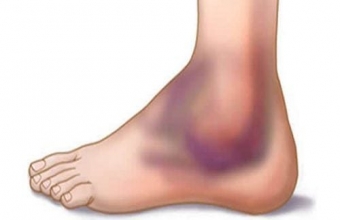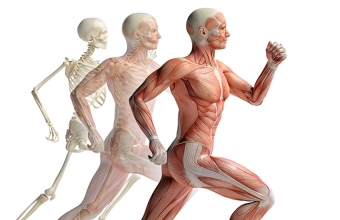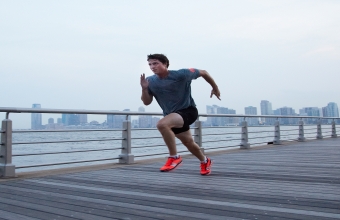Elbow injuries
Elbow tendinitis
Elbow tendinitis, or what is known as tennis elbow, or lateral humerus inflammation is a painful medical condition that occurs in the presence of excessive effort on the elbow joint tendons, and often results from repetitive movement in the wrist and arm, and pain occurs when touching the tendons of the muscles Forearm with a bony protrusion outside the elbow; So that the pain spreads to the forearm and wrist, and despite the name of the case, but athletes are not the only ones who suffer from the elbow of a tennis player, as it can be affected by people whose work requires the exercise of certain types of movement, such as: the butcher, the plumber, the painter, the carpenter, as it may perform Pain, weakness from elbow tendinitis to difficulty shaking hands, gripping things, and carrying a cup of coffee.
Lateral epicondylitis
Tendinitis is inflammation of the muscles that pull the hand back away from the palm.
Pain on the outside of the forearm occurs when the wrist is moved away from the palm. Pain can extend from around the elbow to the middle of the forearm. The pain may increase when griping hard (shaking hands) or even when moving door handles. Continuing to tighten the forearm muscles can worsen this condition and cause pain even when the forearm is not used.
Wrist sprain
Wrist sprain is a stretching or tearing of the ligaments around the wrist, and a wrist sprain is classified according to its severity
A wrist sprain affects the ligaments that line the lower ends of the forearm bones together, the radius or ulna, or the eight ligaments of the wrist bones.
It occurs as a result of severely bending the hand towards the back
Symptoms:
The absence of a specific pain point and it may be direct pain above the wrist joint - Inflammation occurs during the first hour of injury and increases according to the severity of the injury. - Movement limits with a feeling of weakness in the forearm and difficulty holding - Joint instability in severe sprains
Dislocated wrist
It is the removal of the wrist bones from their normal position, and the wrist dislocation usually affects the lunate bone
It occurs as a result of a fall with an open arm, with the hand bent forward or backward. Or pressure on the wrist bones due to friction with one another.
As for the most important complications, in cases that are not diagnosed properly and early and appropriate treatment is not done, this may lead to poor healing.
It leads to deformation of the side of the hand or the joints of the fingers, where it protrudes in the form of a bump or swelling and causes one of the eight wrist bones to be shifted up or down
Pain, inflammation and tenderness in the wrist area with loss of range of motion.
Stretching and tearing of the wrist and finger ligaments
It is one of the most common injuries on the stadiums and the wrist joint is torn in goalkeepers in football and occurs in handball, plane, basketball, wrestling, gymnastics and fencing.
Symptoms include severe pain and swelling
Small tears in the ligaments and the capsule between the articular bones
Restriction of movement in the joint is a complication of the injury.
 Arabic
Arabic
 English
English







Comments